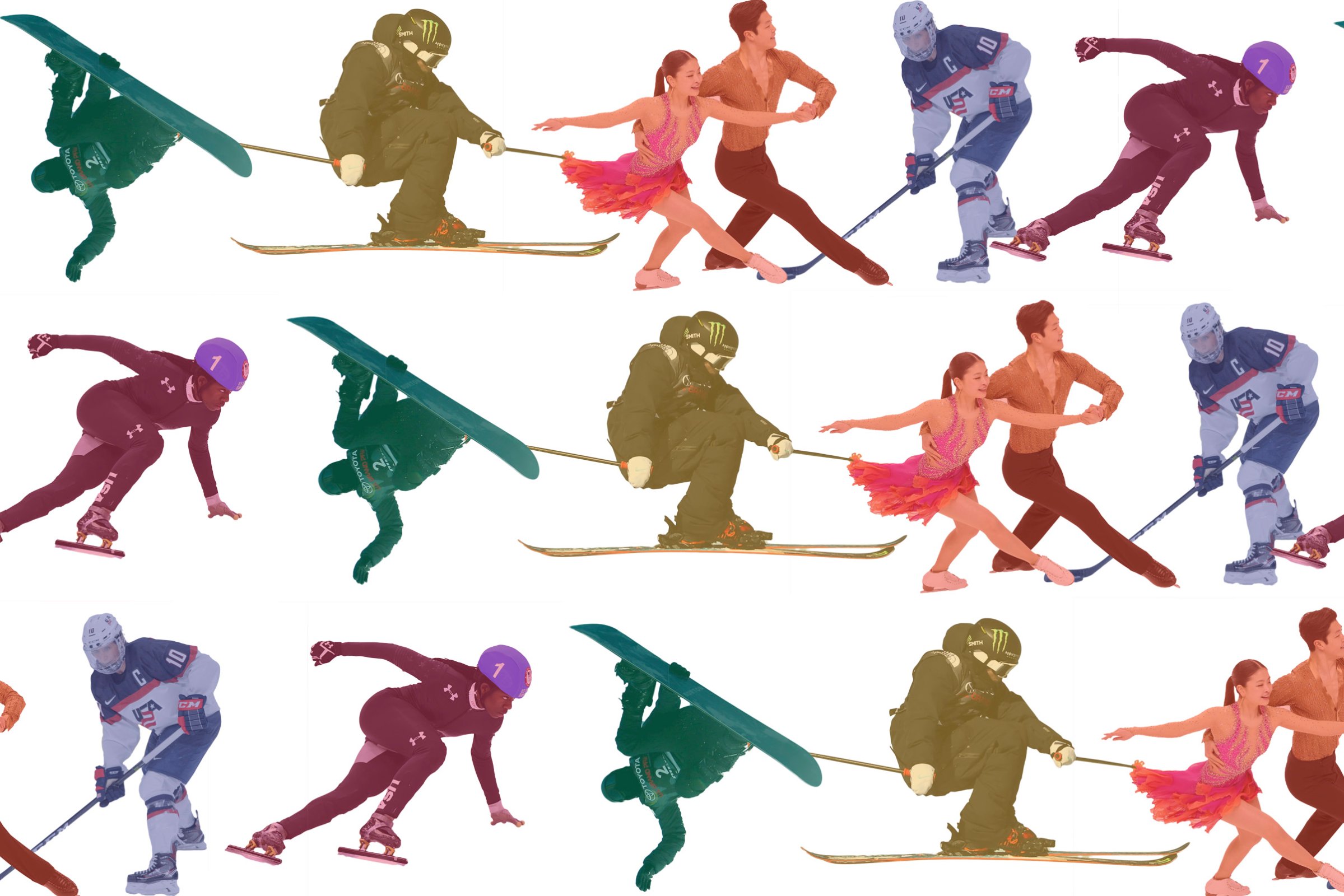
Every Winter Olympics has its breakout stars—the rookie defying the odds to win her first gold medal, the legend defying time to win his last. The 2018 Winter Olympic Games in PyeongChang, South Korea has no shortage of candidates on both counts, from teen phenoms like Russian figure skater Alina Zagitova and American snowboarder Chloe Kim, to hardboiled veterans like U.S. skier Lindsey Vonn and the man known as Legend, 45-year-old Japanese ski jumper Noriaki Kasai.
From French figure skaters to Nigerian bobsledders, here’s your guide to the Olympic athletes to watch as the 2018 PyeongChang Games kick off on Wednesday, Feb. 8:
Chloe Kim, Snowboarding, USA
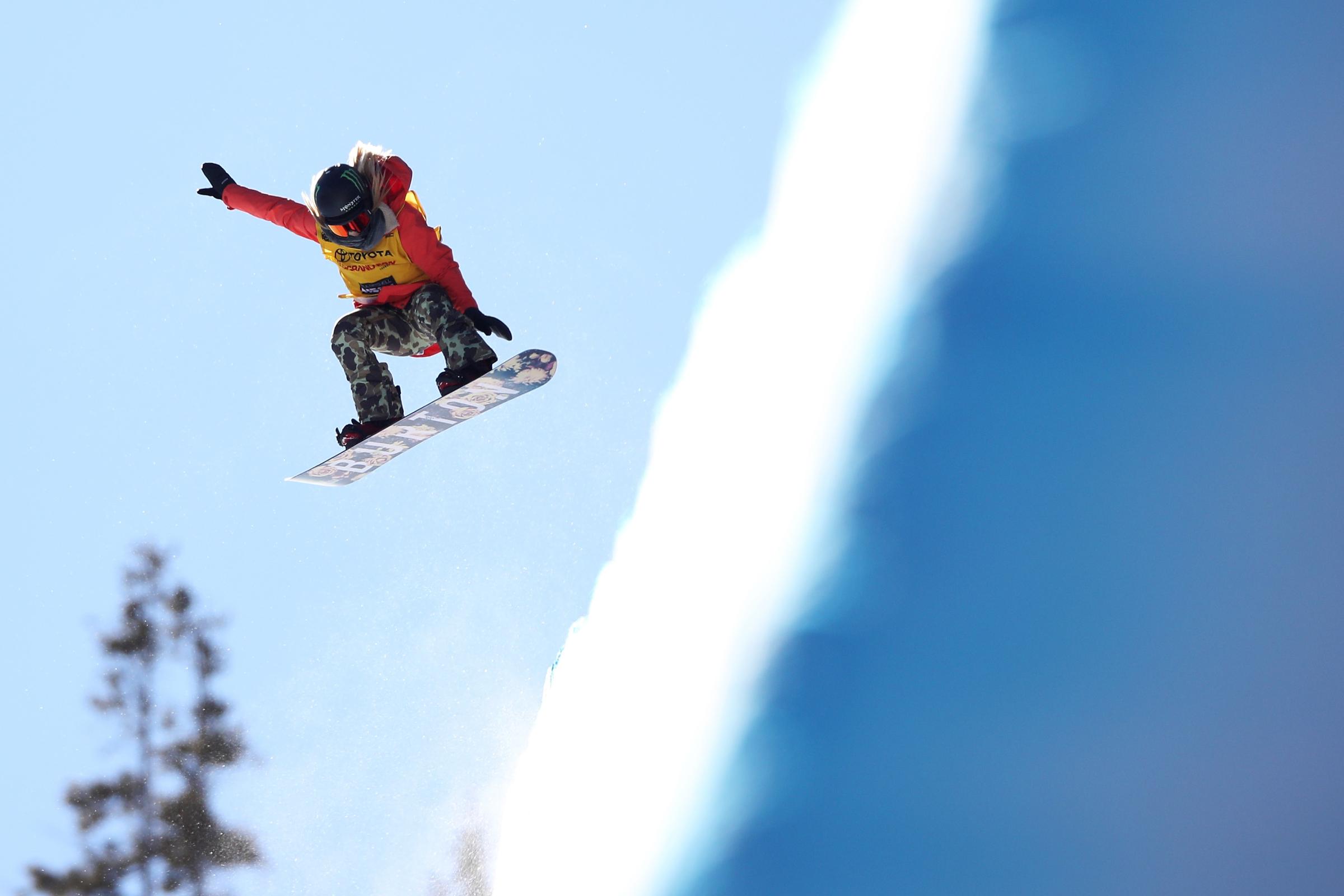
Talk about great expectations. Four years ago, Olympic athlete Chloe Kim qualified for Team USA in Sochi—but she was still two years shy of 15, the minimum age to compete in the Winter Olympics. “Looking back on it, I’m really glad I couldn’t go,” Kim says. “I don’t know how my 13-year-old self would have dealt with it.”
Now in PyeongChang, Kim is widely seen as the gold-medal favorite in the halfpipe event. Her top competition is likely her fellow Americans Kelly Clark, who won Olympic halfpipe gold 16 years ago, Arielle Gold and Maddie Mastro.
The exuberant Southern California native has a phenom’s resume: she is the youngest snowboarder to earn a gold medal at the X Games—in 2015, at age 15—and the first female athlete to land back-to-back 1080s (three full revolutions in the air) in competition. “She rides with incredible style and goes huge,” says snowboarding legend Jake Burton. “She’s at the pinnacle right now.”
Kim was raised in Torrance, Calif., but her parents, who immigrated to the U.S. from South Korea, were keen on family trips to the mountains, and Kim took up snowboarding at age 4. Kim started riding seriously when she was 8, after her parents sent her to live with an aunt in Geneva for two years. In the years since, Kim has medaled in all six of her X Games starts, including four golds, all while juggling online classes for high school. “I’m so, so honored to be in this position, where I get to represent both countries,” Kim says. “It’ll be a good time.”
Nathan Chen, Figure Skating, USA
Chen, the two-time U.S. national figure skating champion, is known as the Quad King for being the first skater in the world to land five quadruple jumps in a single program. Even most elite figure skaters perfect just one or two of the four-rotation jumps. But the 18-year-old’s ability to whip off five different quad jumps makes him a favorite to win individual gold in the PyeongChang Games.
A native of Salt Lake City and the youngest of five, Chen displayed his extraordinary skill early, landing his first triple jumps at 10. Trained in ballet and gymnastics along with skating, Chen’s strength and technique offer a strong foundation for his athletic repertoire of jumps. Adam Rippon, Chen’s training partner and Olympic teammate, says Chen is “one of the best jumpers in the world” and credits him with improving his own skating.
The downside of all that flexibility and sheer physical force is the toll it can take on his body—Chen was off the ice for five months after injuring his hip in 2016. “I never set out to do these programs, or to make history,” Chen says. “I just like to keep pushing myself and the sport.”
Mikaela Shiffrin, Alpine Skiing, USA
Olympic athlete Mikaela Shiffrin started skiing when she was around 2. By middle school, she was reading reading sports psychology books and studying video of her slalom technique. In high school, she skipped most parties in favor of sleep, knowing rest was critical to her performance on the slopes. Now 22, Shiffrin’s single-minded pursuit of skiing greatness had paid off. In 2014, she became the youngest Olympic slalom gold medalist ever. She won the World Cup all-around title a year ago, and leads the standings this season. For PyeonChang, Shiffrin has added speed events—the downhill and Super-G—to her program. Her chase for five Olympic medals—a haul that would set a new record for skiing—will be one of the biggest stories of the 2018 Winter Olympics.
Bradie Tennell, Figure Skating, USA
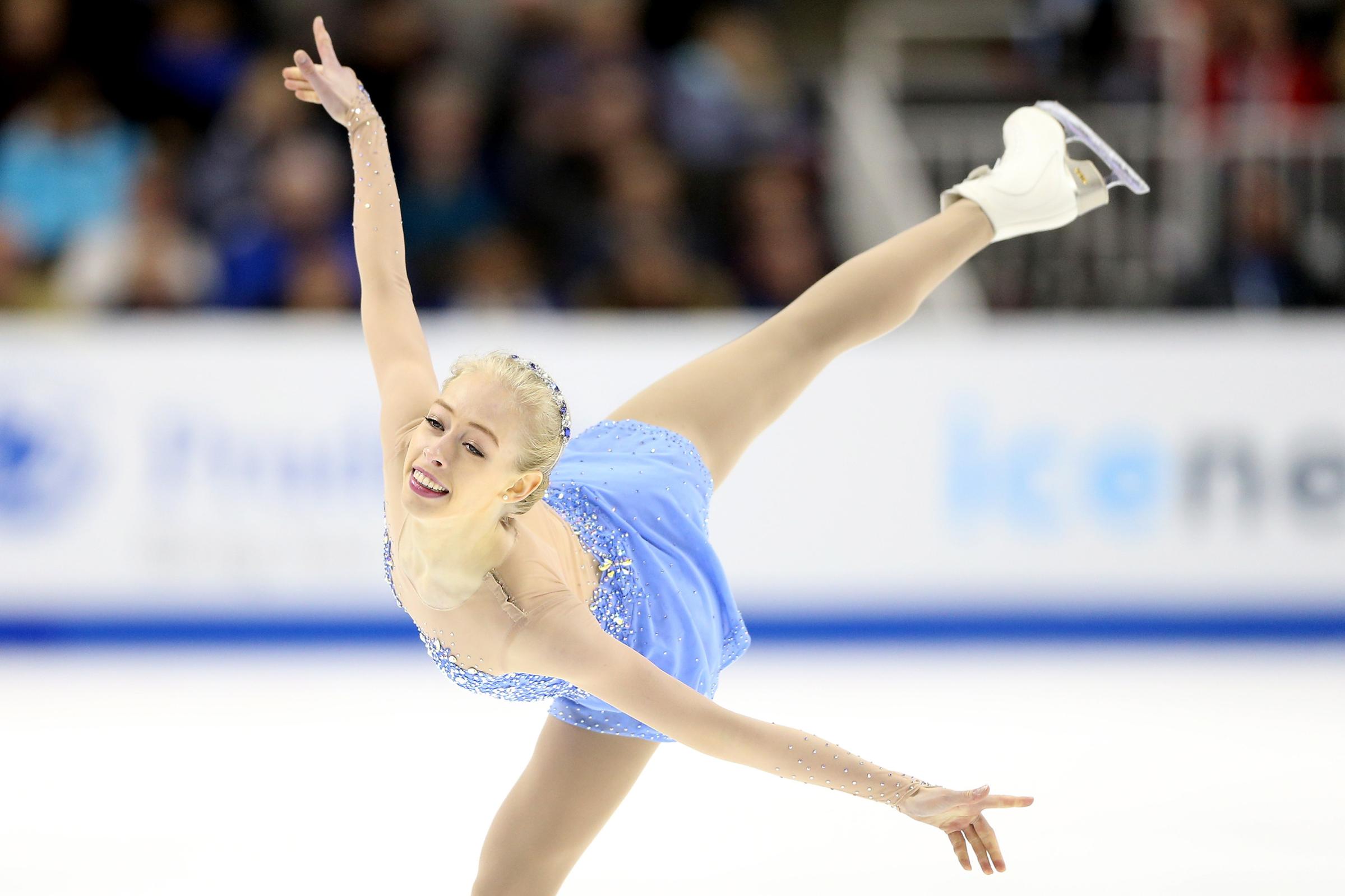
Figure skater Bradie Tennell is nothing if not prepared. After being derailed by back injuries, the 20-year-old from Illinois was cleared to skate again in late 2016, and she hit the ice in stride. This season, Tennell earned bronze at her first major international competition, won gold at the U.S. national championships and skated away with a surprise spot on the Olympic team. ““I had a renewed sense of motivation and was able to get down to business,” she tells TIME.
Tennell is now a dark horse to medal in PyeongChang. And while she couldn’t have predicted how things would turn out, she was, as always, prepared: Tennell’s short program is set to a patriotic song by a South Korean composer.
Magnus Kim, Cross-country Skiing, South Korea
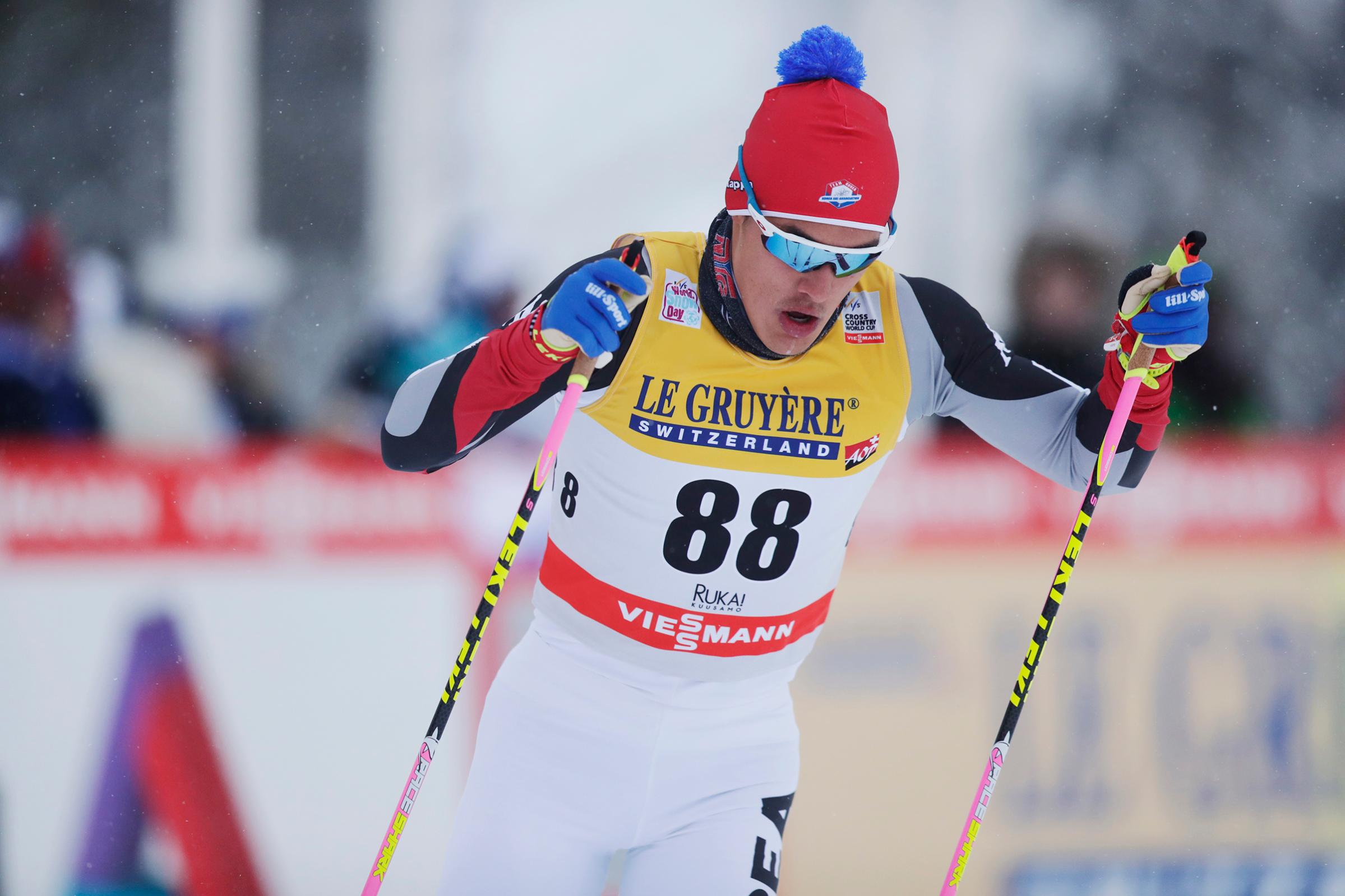
South Korea rejoiced when cross-country skiing phenom Kim, 19, announced he would compete for the host country in PyeongChang. Kim’s mother is South Korean, his father is Norwegian and Kim held citizenship in both countries. In 2016, Kim became the first South Korean to win a gold medal at a major international cross-country event, when he took two golds and a silver at the 2016 Youth Winter Olympics. No Asian country has ever won an Olympic cross-country medal. While skiers from Norway, Sweden and Italy provide stiff competition, Kim has home-field advantage—and the hopes of a nation behind him.
Lindsey Vonn, Alpine Skiing, USA
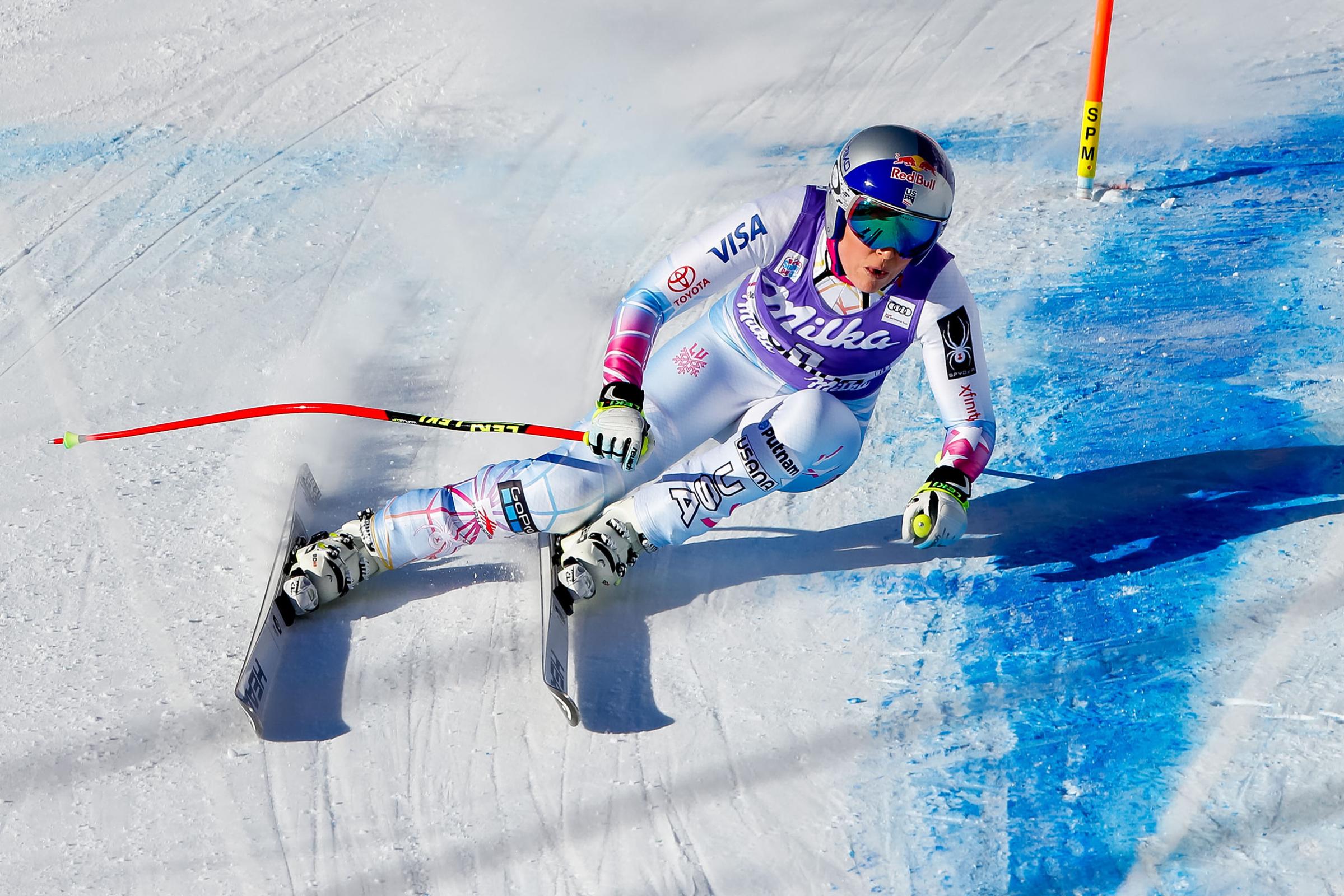
The all-time women’s leader in World Cup wins–she has 79–Lindsey Vonn, 33, is making her first Olympic appearance since Vancouver in 2010, when she won the downhill gold and Super G bronze. The Olympic athlete has fought heartbreaking injuries since the 2010 Winter Olympics; knee damage caused her to miss the Sochi Olympics entirely, she fractured her right arm in a training crash a season ago, and Vonn even tweaked her back this season. After becoming the oldest winner of a World Cup downhill race in January, expectations are soaring for the veteran American downhill star.
Seun Adigun, Bobsled, Nigeria
What started out as a GoFundMe page in 2016 to finance an outlandish Olympic pursuit, is now a story worthy of Hollywood. A former sprinter at the University of Houston who ran for Nigeria at the 2012 London Olympics, Adigun, 31, will drive the first bobsled team to ever represent Africa at the Winter Olympics. In December, in the midst of training for PyeongChang, Adigun earned a masters degree in exercise and health sciences, as well as her doctorate of chiropractic.
Jamie Anderson, Snowboarding, USA
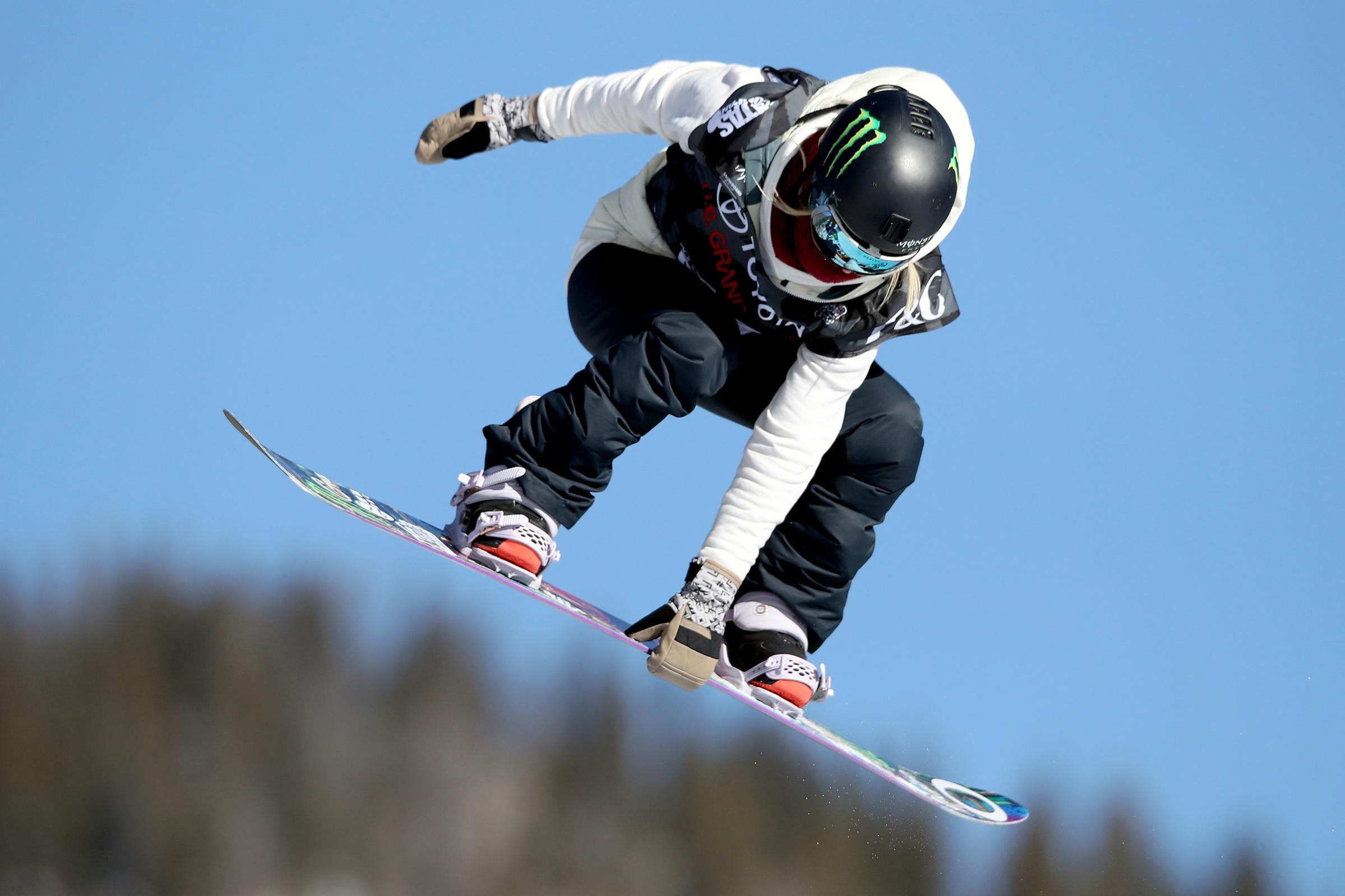
Before a competition, the eco-conscious, free-spirited Anderson, 27, will hug a tree if she spots one (she says it relaxes her). One of eight children, Anderson credits home schooling with giving her time to explore the outdoors, and find her calling on a snowboard. “It brings tears to my eyes, how much I feel that same vibration that kids should be kids,” Anderson told Today in 2014. “I think it’s sad how much time kids have to spend inside nowadays and I have so much gratitude for how my mom and dad chose to raise my family.” Anderson won the inaugural slopestyle event in Sochi; a repeat in PyeongChang would make her the first women’s snowboarder to win two Olympic golds.
Maame Biney, Speedskating, USA
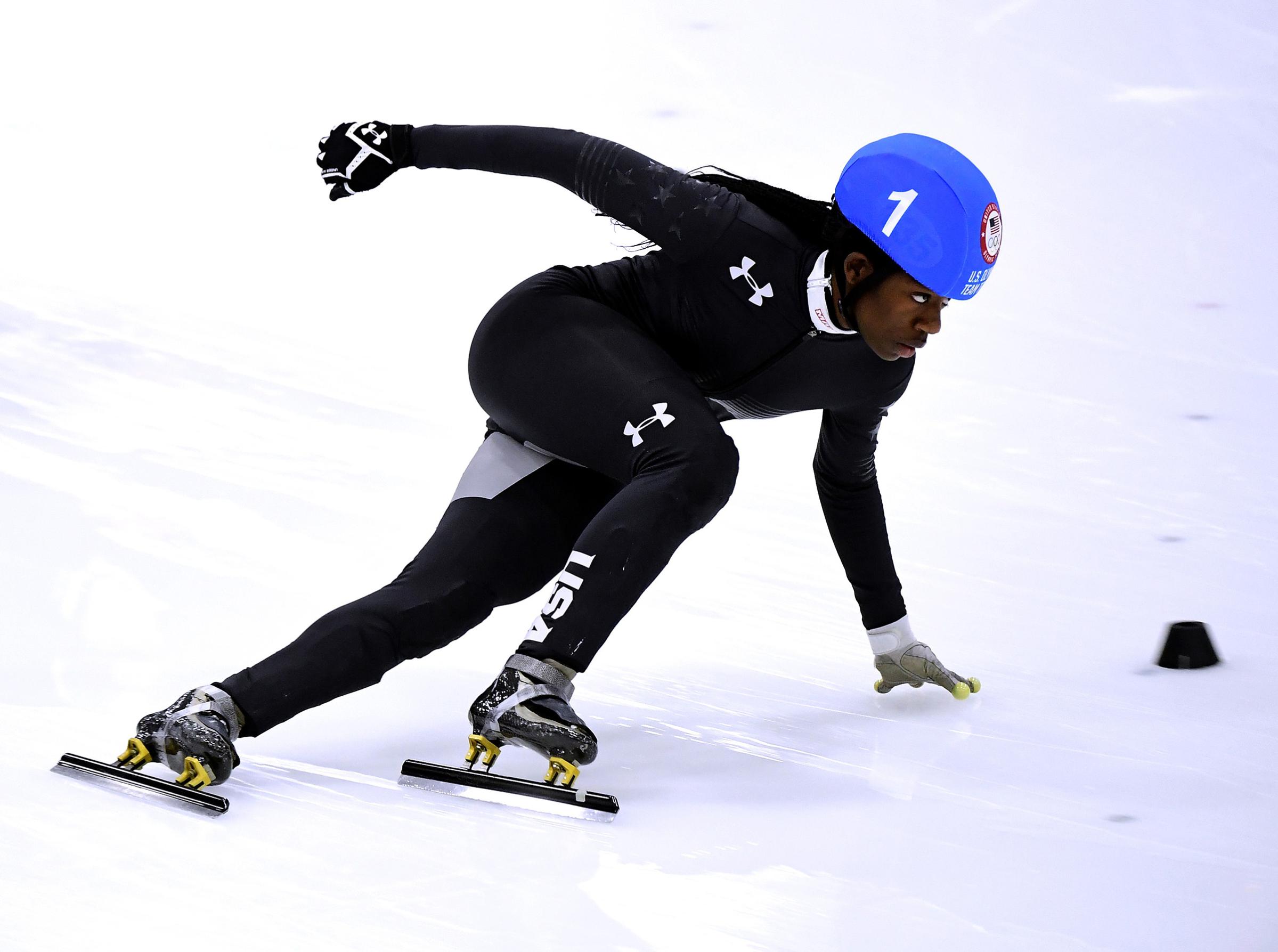
Maame Biney, 18, became the first African-American woman to qualify for a U.S. speedskating team. She moved to Maryland from Ghana at age 5, and took up the Winter Olympic sport when her father spotted a sign offering lessons. Biney started out in figure skating. An instructor, noting how fast she was moving on the ice, suggested Biney try speedskating instead. The high school senior is taking online classes during her intense Olympic year, and is interested in studying chemical engineering in college.
Gabriella Papadakis and Guillaume Cizeron, Figure Skating, France
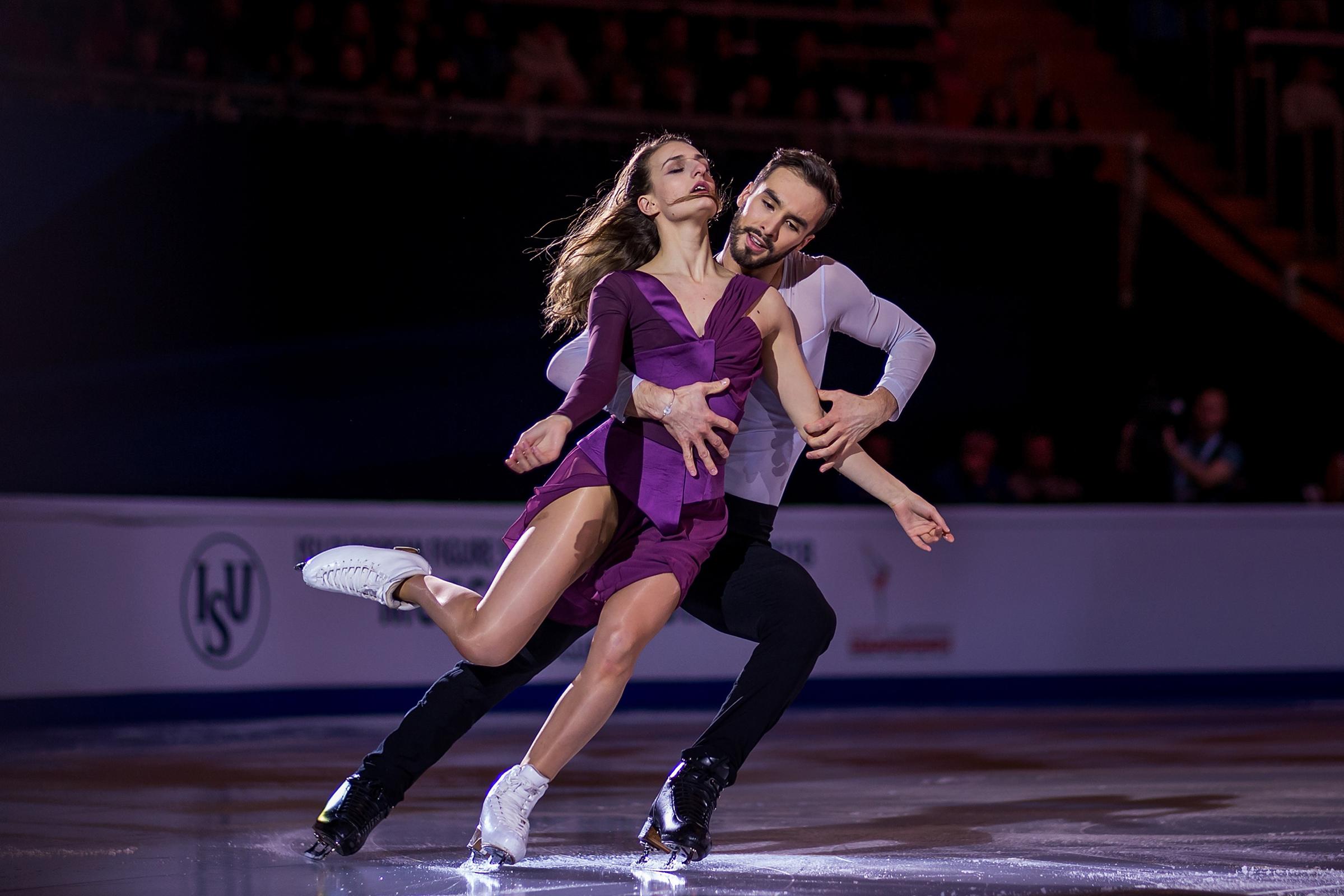
Their coach says the pair skate so fluidly and quietly that it’s as if they aren’t touching the ice at all, but hovering above it instead. The French figure skating team, who train in Montreal, earned the highest scores recorded in ice dance for their free program set to Beethoven’s Moonlight Sonata.
When they first started ice dancing together in 2008, the duo was coached by Papadakis’ mother, a former figure skater. They were vying for one of two Olympic spots in 2014, but missed the cut and decided to move from France to Canada to train. Cizeron designs most of their costumes.
Justine Dufour-Lapointe, Freestyle Skiing, Canada
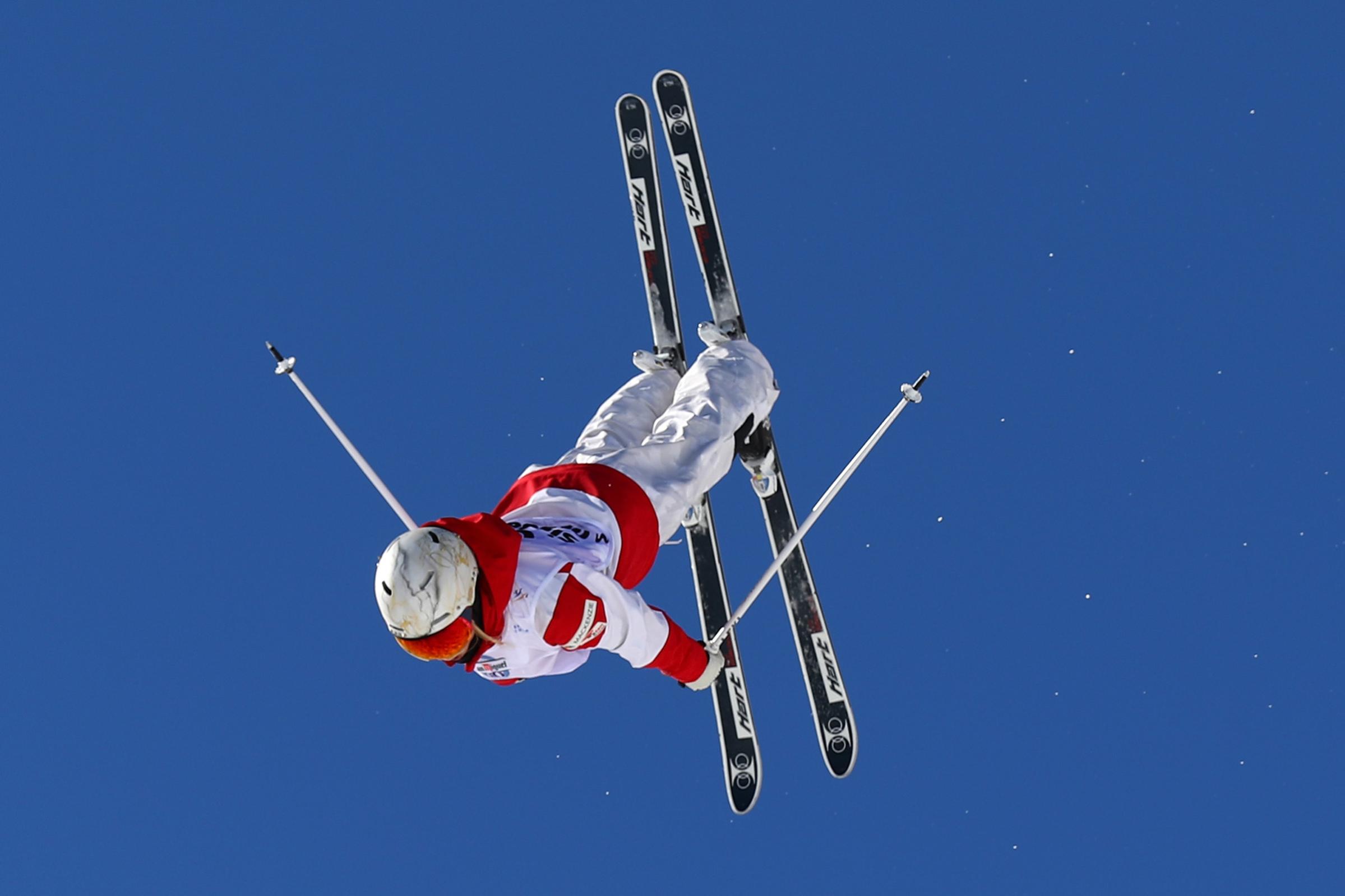
Dufour-LaPointe, 23, is the defending Olympic champ in moguls; older sister Chloé, 26, who won silver in Sochi, will also compete in PyeongChang (a third Dufour-LaPointe sister, Maxime, 28, who finished 12th in Sochi, will be in PyeongChang cheering on her sibs). Justine and Chloé were just the third pair of sisters to ever win gold and silver in the same event in Olympic history. Austrian lugers Doris and Angelika Neuner did it in 1992, and French skiers Christine and Marielle Goitschel went 1-2 in 1964. The sisters will competing with heavy hearts; they recently shared the news that their mother, Johane Dufour-Lapointe, has been battling cancer, though the skiers say the illness has been in remission since August.
Meghan Duggan, Hockey, USA
After two straight losses to Canada in the women’s hockey Olympic gold medal game, U.S. team captain Duggan, 30, is seeking revenge against an archrival. The Americans are expected to meet Canada again in the final in PyeongChang. “Everything’s at stake,” she says.
Duggan is a former star at the University of Wisconsin, where in 2011 she was named winner of the Patty Kazmaier award, given annually to the top female college player in the country.
Noriaki Kasai, Ski Jumping, Japan
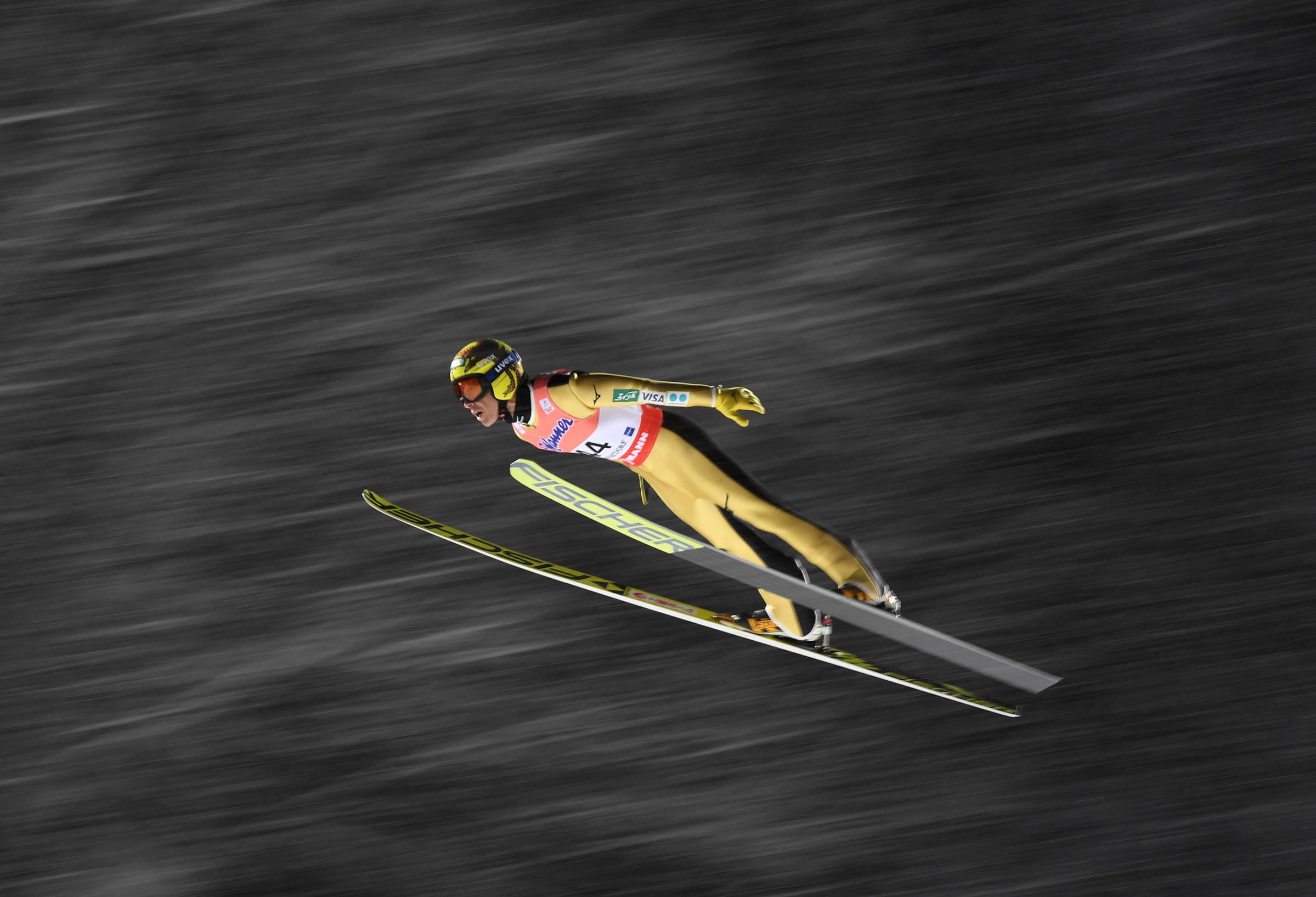
Kasai, 45, is making his record eighth straight Olympic appearance. After making this Olympic debut in Albertville, France in 1992, Kasai won a team silver medal in Lillehammer in 1994, then earned individual silver and a team bronze in Sochi–another record, for the longest gap between Winter Olympic medals. His hometown, Sapporo, is likely to bid on the 2026 Olympics; if Sapporo wins, Kasai wants to compete in those Olympic Games. He’d be 53. “It is too big a chance to give up,” Kasai told the Japan Times. His nickname: Legend.
Ryom Tae Ok and Kim Ju Sik, Figure Skating, North Korea
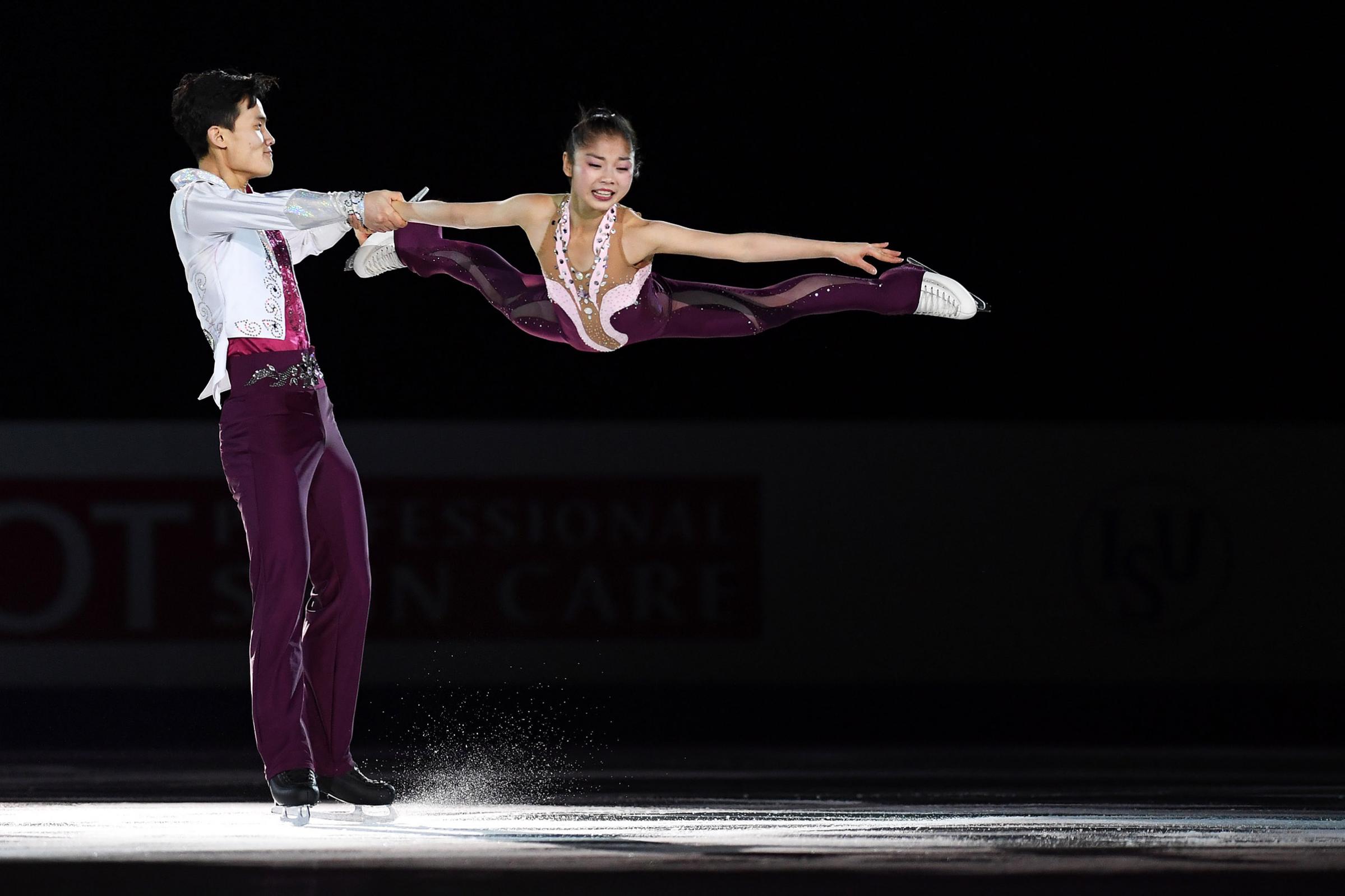
No figure skating pairs team will be more closely watched than these North Korean figure skaters, who spent last summer training in Montreal to prepare for their Olympic debut. Ryom and Kim will be the first pairs skating team from the Hermit Kingdom to compete in the Olympics.
Gus Kenworthy, Freestyle Skiing, USA
Kenworthy, 26, will join U.S. figure skater Adam Rippon as the first openly gay American athletes to compete in a Winter Olympics.“The thought of being the first openly gay male ever to compete in the Winter Olympics—I totally embrace that,” Kenworthy told TIME. “I so badly want to inspire that community and do well for them. It’s f–king cool.” The 2014 slopestyle skiing silver medalist has won the Association of Freeskiing Professionals overall world title seven straight times.
Maia and Alex Shibutani, Figure Skating, USA
It was Maia who found figure skating first, at the young age of four, and it wasn’t long before older brother Alex, who waited at the rink during her lessons anyway, was drawn to skating too. In their first U.S. junior championships, they earned a silver.
Their parents, Naomi and Christ, both musicians who met in college, realized their offspring were talented on ice, so Naomi moved with Maia and Alex to Colorado Springs, headquarters of U.S. Figure Skating, so they could take advantage of the nation’s best coaching and training facilities. Chris made weekly trips west from Connecticut, where the family lived, to see them. It wasn’t long before they outgrew that program, and moved to Detroit to work with the growing ice dance program under Marina Zueva, who trained 2014 Olympians Meryl Davis and Charlie White and Madison Chock and Evan Bates.
Two-time national ice dance champions, the siblings are hoping to earn their first Olympic medal in PyeongChang. “This competition is what we have been working for; everything has been building to this point,” says Alex.
Ted Ligety, Alpine Skiing, USA
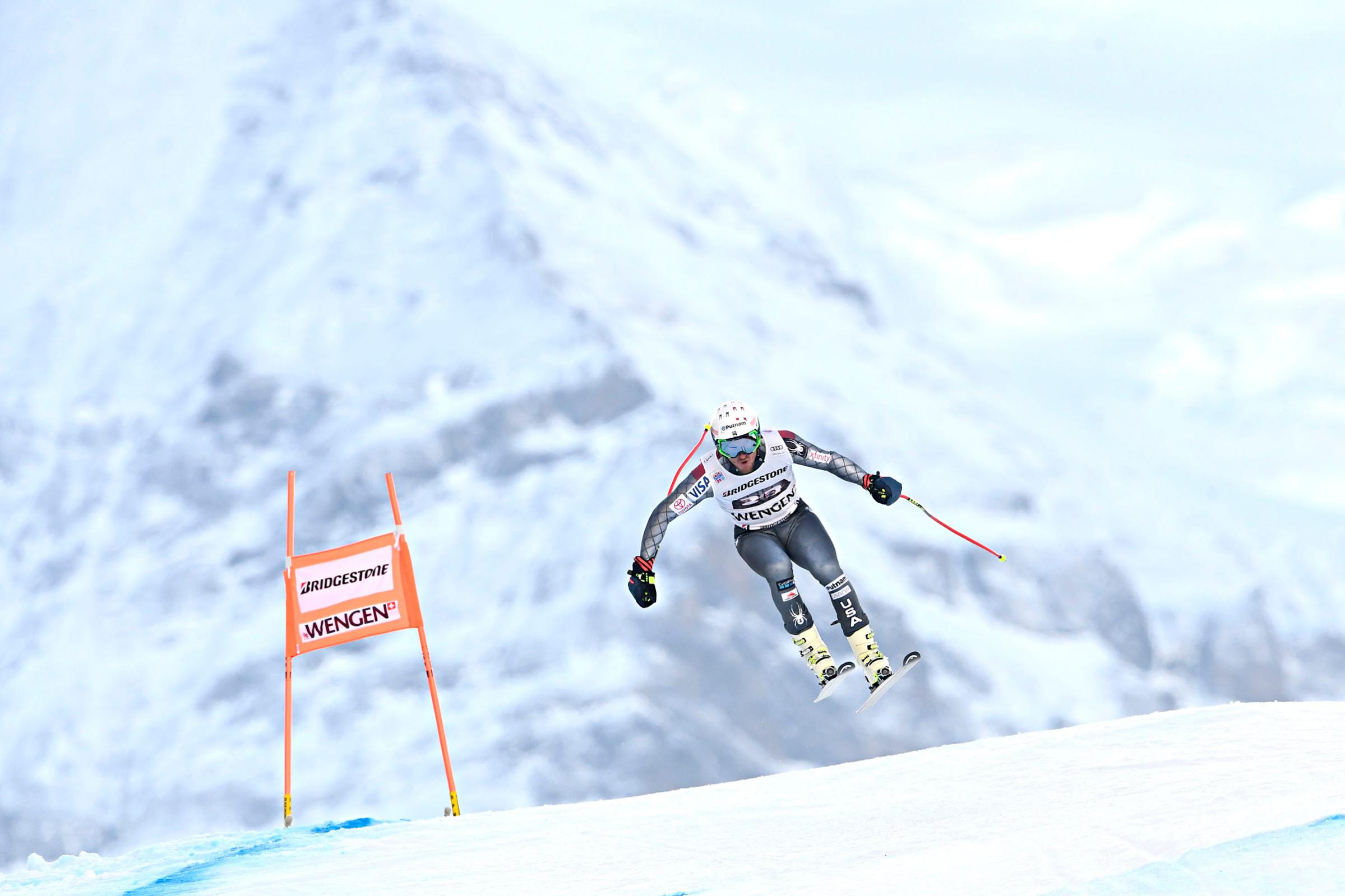
Arguably one of the more underappreciated recent U.S. Olympic athletes, Ligety, 33, will suit up for his fourth Olympics in PyeongChang. He’s the only American man to have won two gold medals in Alpine skiing. He became the youngest man to win a gold medal with his victory in the combined event in Torino—Ligety was 21—and he took the giant slalom in Sochi. Back surgery a year ago, and knee surgery the season before that, almost waylaid his hopes for the 2018 Olympics. But in the last giant slalom World Cup event before PyeongChang, in Garmisch-Partenkirchen, Germany in late January, Ligety finished third, his first World Cup podium appearance since 2015. “This is the first time in awhile,” Ligety says, “where I actually feel good.”
Shim Suk-hee, Speedskating, South Korea
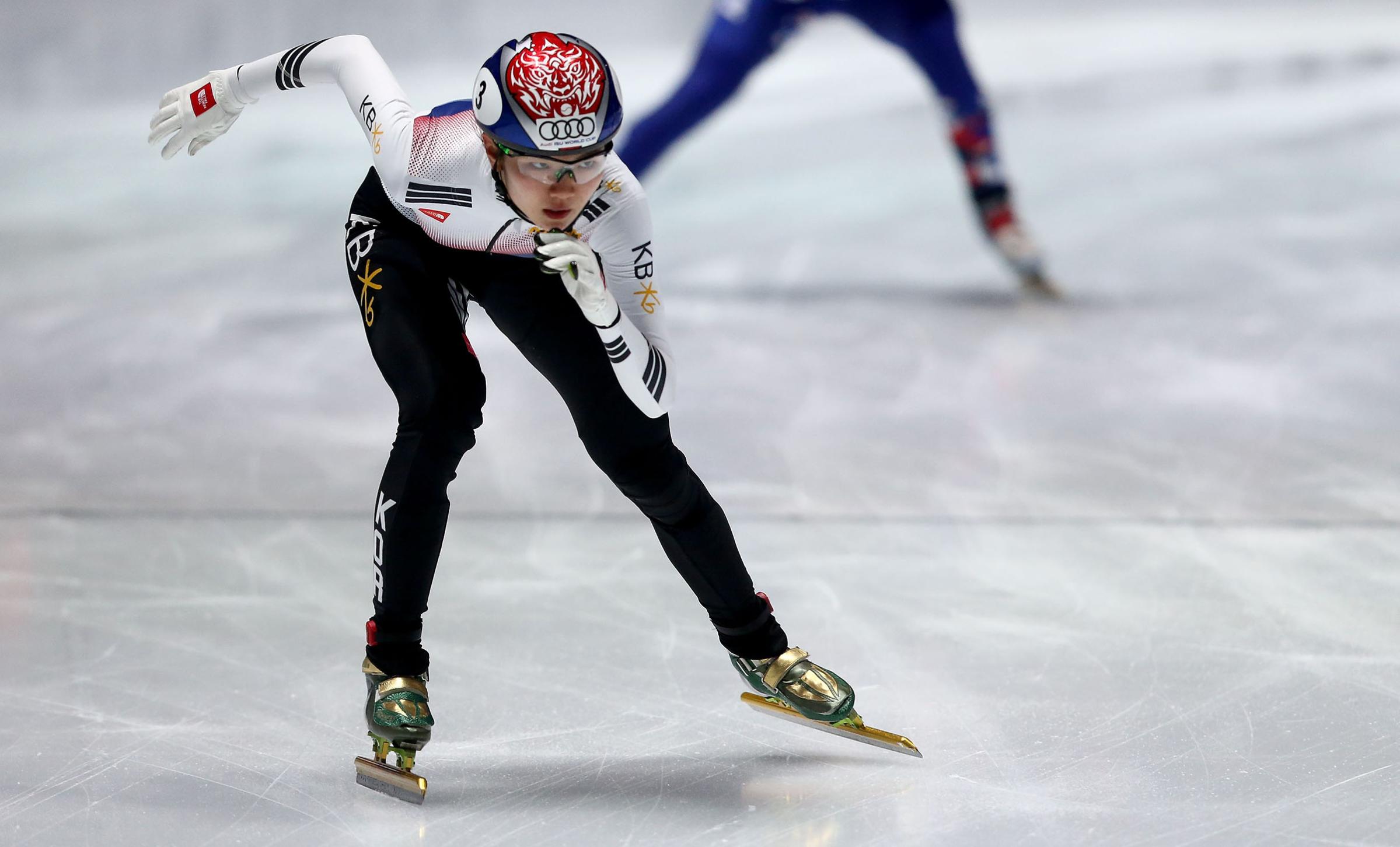
The native of Gangneung—the coastal city hosting all the arena ice events at the 2018 PyeonChang Olympic Games—won gold, silver and bronze in Sochi. Short track is wildly popular in South Korea, and Shim, 21, holds the world record in the 1,000 m. Besides inspiring the hopes of the home city—and country—Shim is coping with controversy: her coach has been suspended after reportedly assaulting her.
Elana Meyers Taylor, Bobsled, USA
She won bronze as a brakeman in Vancouver and took silver in Sochi as a driver. A mishap in Russia— her sled smacked a wall—cost Meyers Taylor, 33, gold; the Olympic athlete has waited four years for another shot. In 2014, Meyers Taylor and two-time Olympic champion Kaillie Humphries of Canada, became the first women to drive four-man bobsleds in World Cup competition; the women still only compete in a two-person sled at the Olympics. Her husband, Nic Taylor, is a fellow bobsledder; he qualified as an alternate in PyeongChang.
Pita Taufatofua, Cross-country Skiing, Tonga
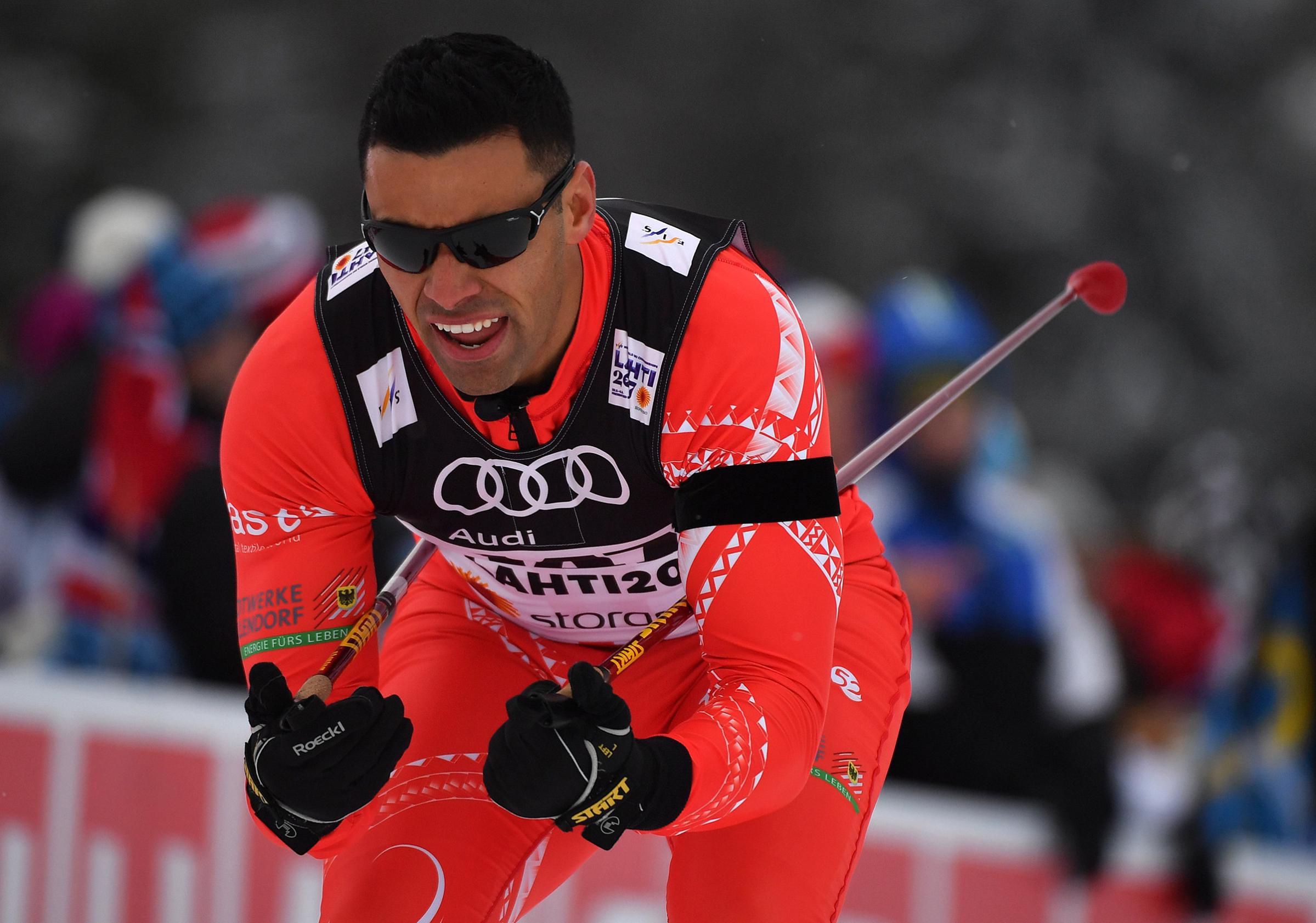
He’s back. Taufatofua, 34, earned temporary fame in Rio, when the Olympic athlete went viral after marching in the Opening Ceremonies shirtless and covered in coconut oil. Despite growing up in the South Pacific and never skiing before last year, Tautatofua secured a bid to PyeongChang in cross-country, a feat he’s labeled a “miracle.” No word if he’ll cover up in the PyeongChang during the 2018 opener, where frigid temperatures are expected for the Games.
Shaun White, Snowboarding, USA
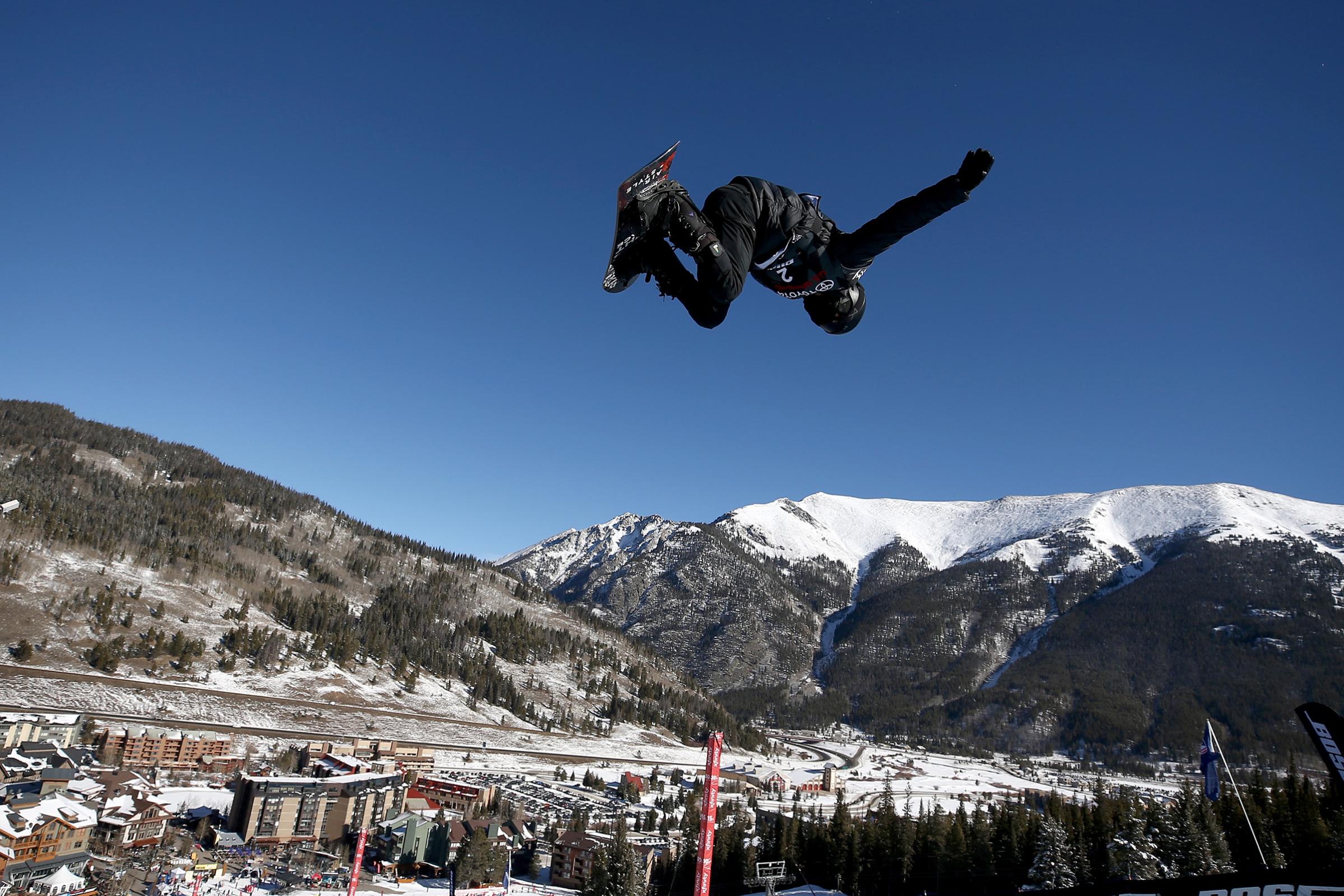
White is seeking redemption in PyeongChang: the snowboarding icon’s third Olympic outing, in Sochi in 2014, was bitterly disappointing. He tried to double up, and compete in both halfpipe and slopestyle, which was making its Olympic debut. But he pulled out of slopestyle before the Opening Ceremonies, and fell twice in the halfpipe final, finishing fourth. “You don’t really ever get over it,” White told NBC. But he’s back for the 2018 Winter Olympic Games; after suffering through a gruesome training crash in October that left him needing 62 stitches, the Olympic athlete, 31, scored a perfect 100 in an Olympic qualifier. The former Flying Tomato – the signature hair has been short for awhile – is going for his third Olympic halfpipe gold medal.
Alina Zagitova, Figure Skating, Russia
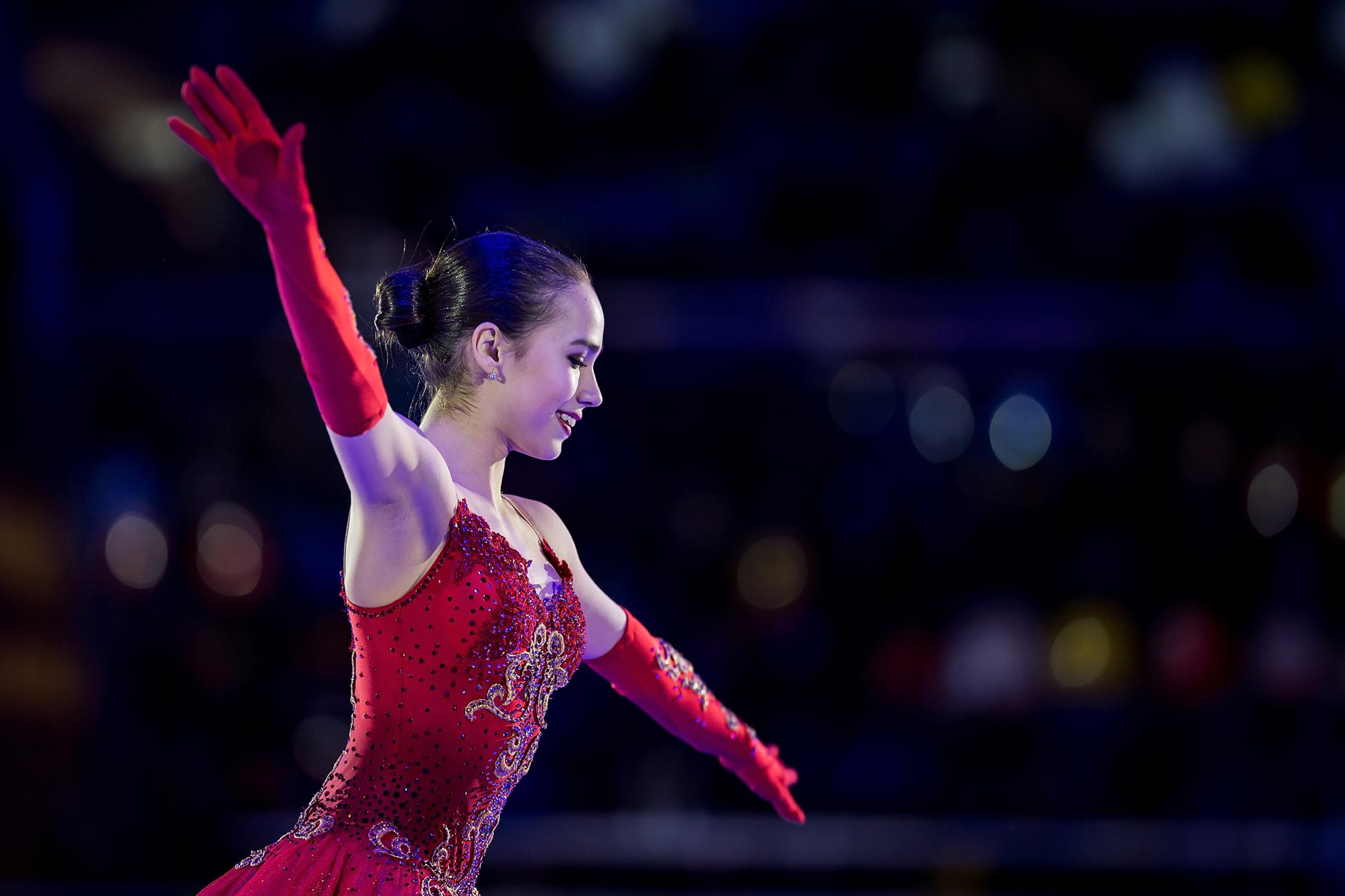
A gold contender at just 15, Zagitova is among the Olympic athletes from Russia who were allowed to compete under the doping ban. She trains with the same coach as Olympic favorite Evgenia Medvedeva, and sometimes, the coach puts them on the ice together so they can push each other. Watch for Zagitova’s long program—she earns bonus points with the judges by packing all of her jumps in the back half.
Brian Gionta, Hockey, USA
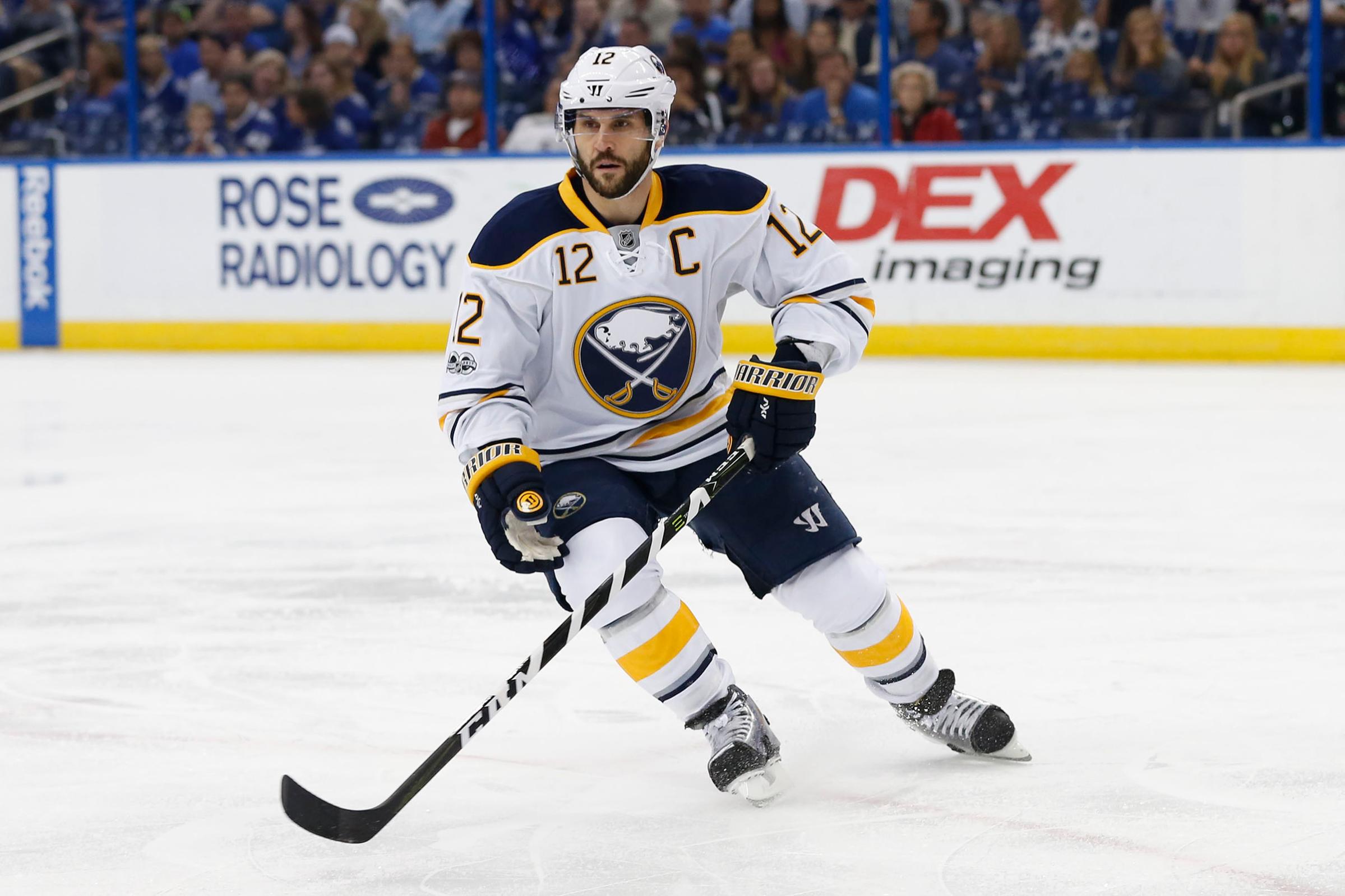
A dozen years after competing in the Torino Olympics as a winger for the United States, Gionta—who at that time played for the New Jersey Devils—spurned offers from the National Hockey League this season so he could return to the 2018 Winter Olympic Games; for the first time since 1994, the NHL has declined to interrupt its season to send its players to the Olympics. The U.S. men’s team, which consists mostly of U.S. minor leaguers, pros playing overseas, and college players, will count on the leadership of team captain Gionta, 39, to return to the medal stand for the first time since 2010, when the Americans lost to Canada, in overtime, in the gold medal game.
Matt and Becca Hamilton, Curling, USA
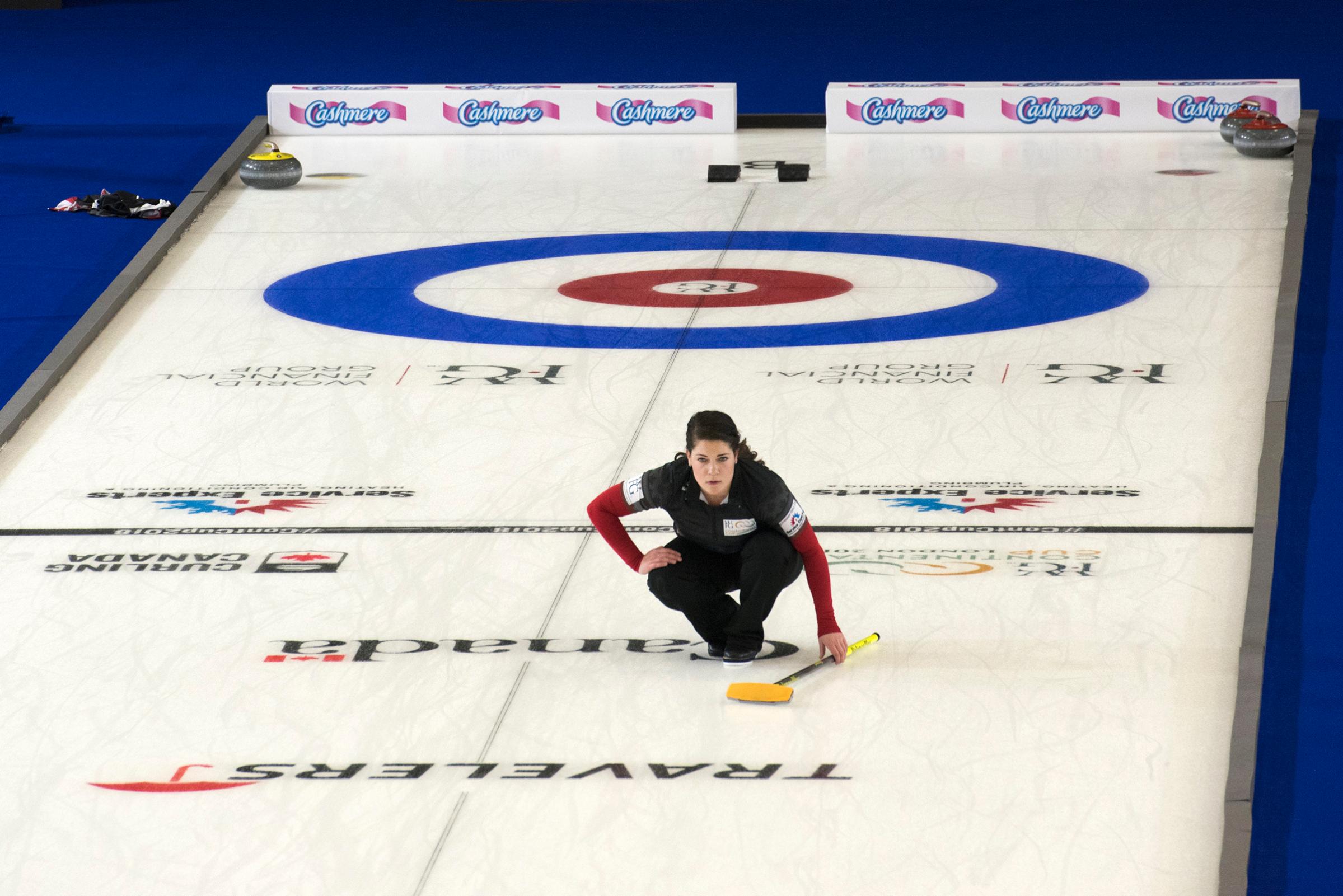
The siblings from McFarland, Wisconsin, will be awfully busy in PyeongChang. Matt, 28, and Becca, 27, are America’s entry into the inaugural Olympic mixed doubles curing tournament. Mixed doubles teams consist of two curlers, instead of the usual four, and the format is a bit different from the single-sex competitions: there’s even a “power play” option in mixed doubles (see here for an explanation). The Hamiltons are also each competing in the men’s and women’s tournaments for Team USA.
Mikaël Kingsbury, Freestyle Skiing, Canada
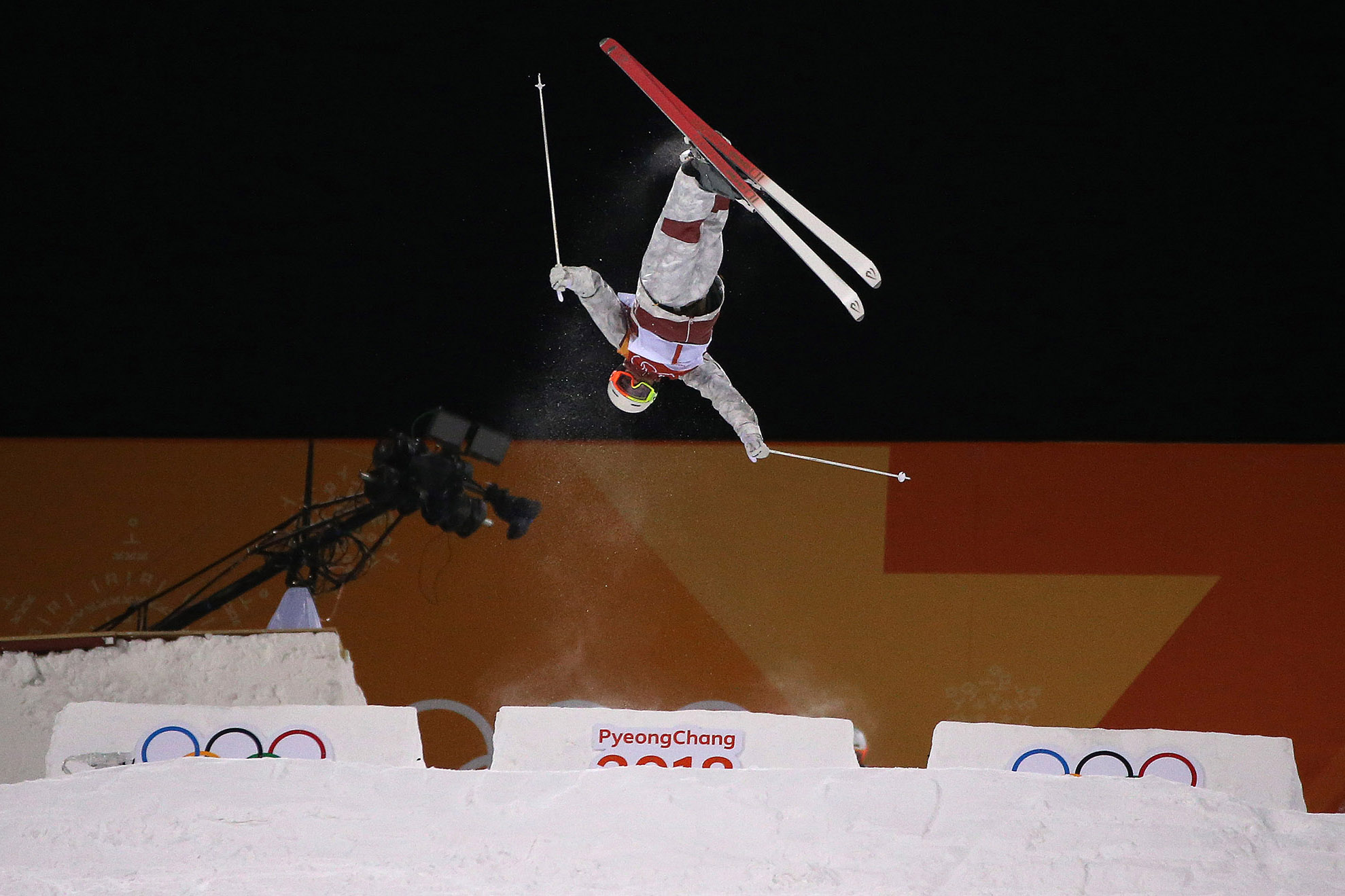
Kingbury, 25, could be the most dominant winter sports athlete in the world today. Until a second place finish at World Cup event in Quebec, his home province, in January, the moguls skier hadn’t lost a World Cup race in almost a year, a stretch that included 13 straight tour events. With 48 World Cup moguls wins, Kingbury already holds the record for most career wins in moguls and dual moguls combined. But Kingsbury, who won silver in moguls in Sochi, is still searching for his first Olympic gold.
Kelly Clark, Snowboarding, USA
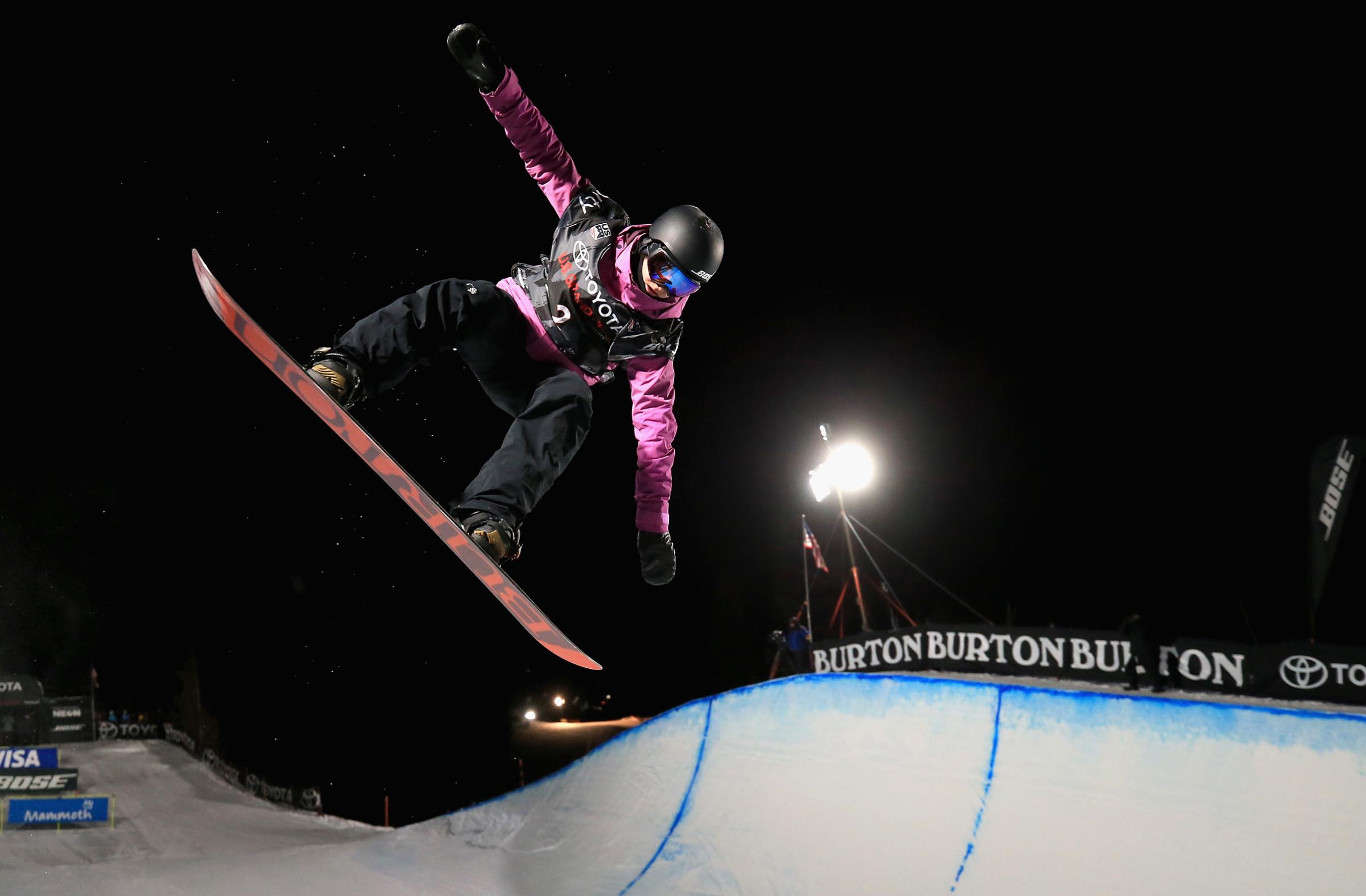
A full 16 years after winning her first Olympic gold medal, on home soil in Salt Lake City, Clark, 34, will try to knock off younger competitors—even as she mentors them. The halfpipe star, who also owns two Olympic bronze medals, has grown particularly close to U.S. snowboarding prodigy Chloe Kim, 17, who idolized Clark growing up; when she was 8, Kim asked Clark if she could ride on a chair lift with her at the Mammoth Mountain Resort in California and Clark obliged. Friendship, however, only goes so far: Clark’s not quite prepared to anoint Kim, or anyone else, the PyeongChang Olympic champ.
Shani Davis, Speedskating, USA
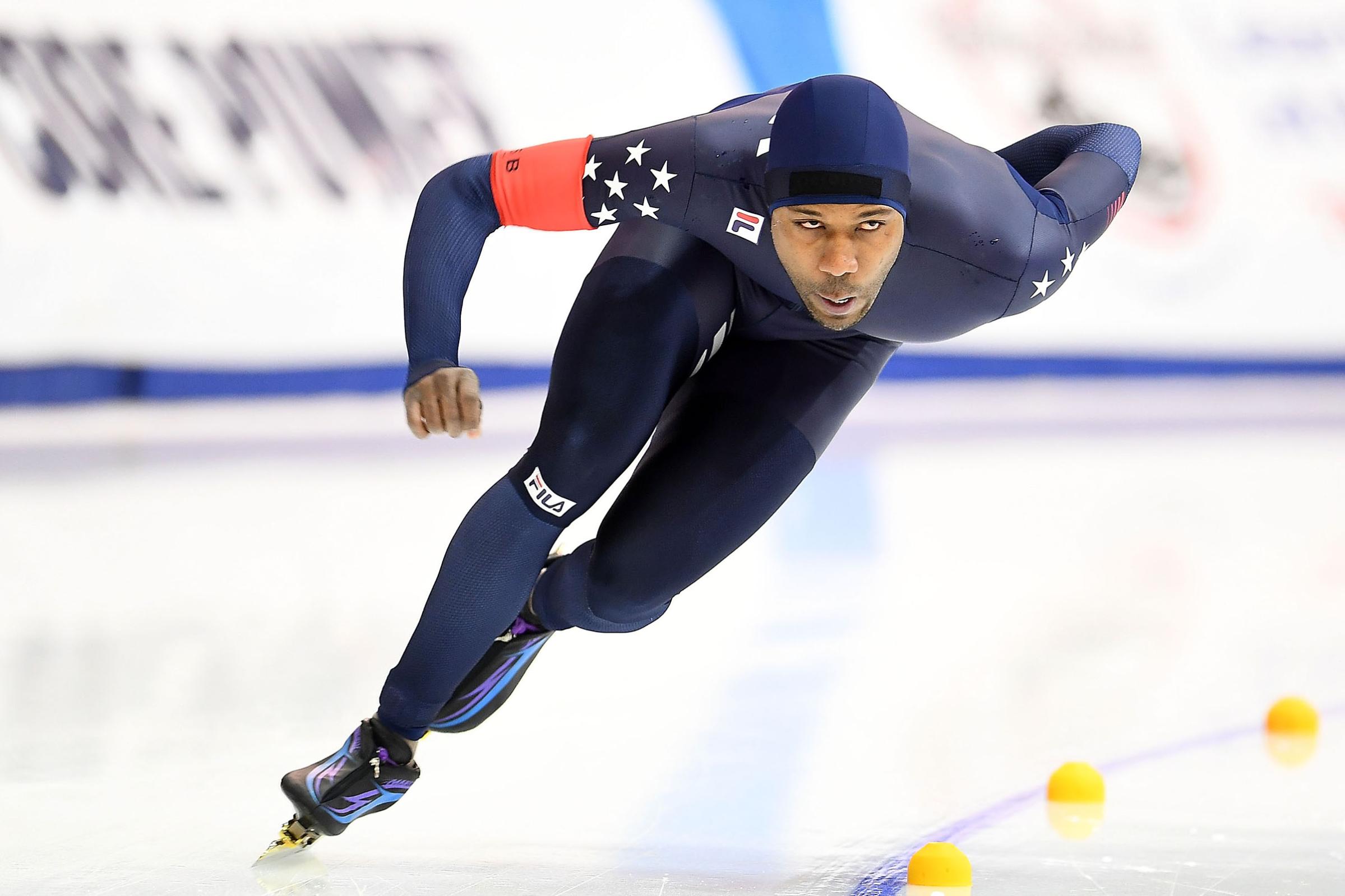
Along with Kelly Clark and cross-country skier Kikkan Randall, Davis, 35, will make his fifth Olympic appearance for Team USA. Though no longer a favorite—his last international victory came in 2015, in the 1000-m at the world championship—the world-record holder in the 1000-m and 1500-m, and his long, powerful strides, are always worth watching. Winner of two Olympic gold medals, two silvers, and 10 world championship titles, the Chicago native started skating when he was 6, when a lawyer for whom his mother worked—who happened to also be a speedskating official—suggested he try the sport.
Correction: The original version of this story incorrectly identified a skater in a photo caption. The photo showed Carolina Kostner, not Alina Zagitova. The story has been updated with a photo of Zagitova.
More Must-Reads from TIME
- Donald Trump Is TIME's 2024 Person of the Year
- Why We Chose Trump as Person of the Year
- Is Intermittent Fasting Good or Bad for You?
- The 100 Must-Read Books of 2024
- The 20 Best Christmas TV Episodes
- Column: If Optimism Feels Ridiculous Now, Try Hope
- The Future of Climate Action Is Trade Policy
- Merle Bombardieri Is Helping People Make the Baby Decision
Write to Sean Gregory at sean.gregory@time.com